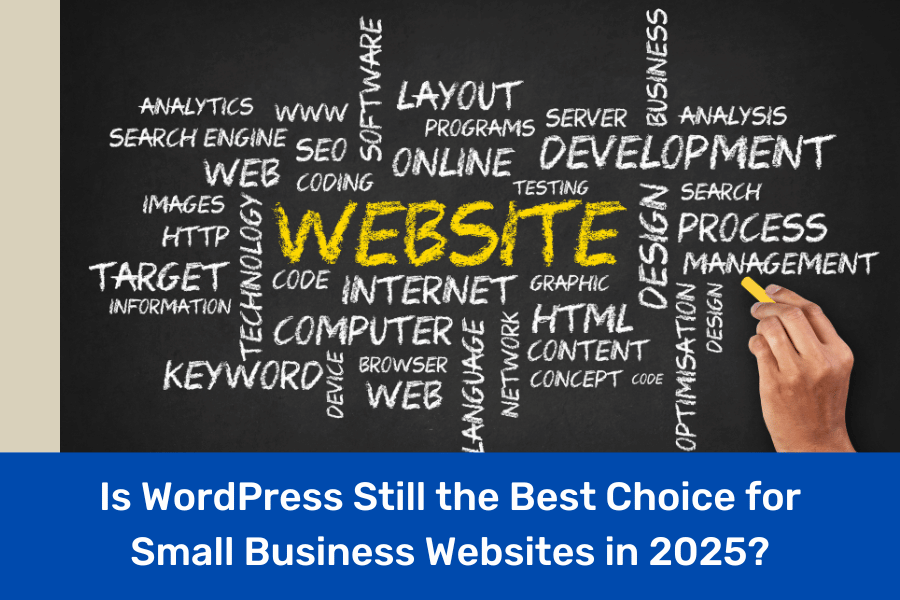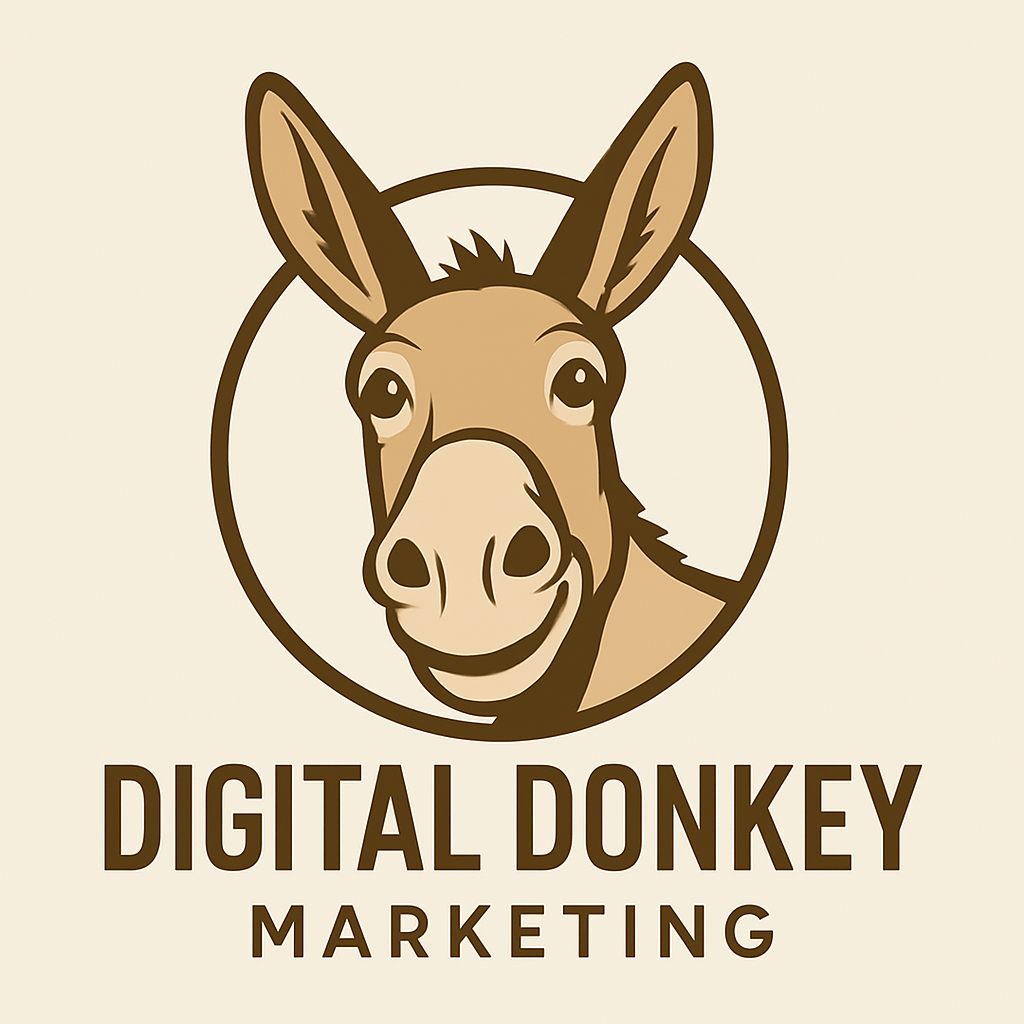Running a small business is no small task. From handling customer service to managing inventory and marketing your services, your to-do list never seems to end. And in today’s world, a professional website isn’t just a “nice-to-have”—it’s a must-have. But with so many website platforms to choose from, you may be wondering: Is WordPress still the best option in 2025?

Let’s break down what’s new with WordPress, how it compares with other emerging platforms, and why it continues to be the gold standard for small business websites.
What’s New With WordPress in 2025?
WordPress has been around for over 20 years, but it’s anything but outdated. In fact, it’s more powerful than ever. Here are some of the newest features and updates:
- Full Site Editing (FSE): Now, every part of your site—headers, footers, templates—can be visually edited using blocks. No coding needed.
- AI-Powered Tools: WordPress has integrated AI to help generate content, suggest layouts, and even improve SEO automatically.
- Improved Security: With tighter default settings and smarter threat detection, WordPress sites are now more secure right out of the box.
- Performance Upgrades: Page load times are faster thanks to better caching, lazy loading, and new image handling.
- Seamless Mobile Editing: You can now make real-time changes from your phone without sacrificing design control.
In short, WordPress has evolved to meet the modern needs of business owners who want both flexibility and simplicity.
How WordPress Compares to Emerging Platforms
New website builders like Wix Studio, Webflow, Squarespace, and Shopify have been getting a lot of buzz. And for good reason—these platforms offer sleek templates and beginner-friendly tools. But when it comes to long-term business growth, WordPress still pulls ahead.
Let’s compare:
| Feature | WordPress | Wix/Squarespace | Webflow | Shopify |
|---|---|---|---|---|
| Ownership of content | ✅ Full control | ❌ Limited | ✅ Full control | ❌ Tied to platform |
| SEO flexibility | ✅ Very strong | ⚠️ Limited access | ✅ Strong | ⚠️ Mostly for eComm |
| Plugin ecosystem | ✅ 55,000+ plugins | ⚠️ Limited | ⚠️ Fewer integrations | ⚠️ Only eComm tools |
| Customization | ✅ Endless | ⚠️ Template-restricted | ✅ High (but complex) | ⚠️ Product-focused |
| Cost control | ✅ Self-hosted | ❌ Subscription-based | ❌ Pricey as you grow | ❌ Transaction fees |
While other platforms may be quicker to launch, they often limit how much you can grow or customize your site later. WordPress gives you room to scale, without switching platforms or paying more in monthly fees.
Why WordPress Remains the Gold Standard for Scalability
If you plan to grow your business, you’ll need a website that can grow with you. That’s where WordPress shines.
Here’s why:
- Scalable Hosting Options: Start with low-cost shared hosting, then upgrade to VPS or cloud hosting as traffic grows.
- Unlimited Design Potential: Whether you need a simple blog or a custom eCommerce storefront, WordPress can handle it.
- Add Features Anytime: Need booking tools? Membership areas? Online courses? Just install a plugin—no need to rebuild your site.
- SEO That Works: WordPress plays nice with Google. Add tools like Yoast or Rank Math, and you’ll be ready to climb the search rankings.
- Open Source Advantage: You’re never locked in. Unlike proprietary platforms, WordPress sites can be moved, copied, or customized without restriction.
Simply put, WordPress offers the best mix of control, customization, and growth potential—especially for small, local businesses that want to make a big impact online.
FAQs About WordPress
Q: Isn’t WordPress hard to learn?
A: Not anymore. With visual editing, drag-and-drop blocks, and easy-to-use themes, WordPress is now just as beginner-friendly as most other platforms.
Q: Do I need to hire a developer to use WordPress?
A: Not necessarily. Many small business owners start with a pre-built theme and DIY their site. But having a professional like Digital Donkey Marketing handle it ensures it’s built right from day one.
Q: How much does a WordPress website cost?
A: It depends. You’ll need a domain (around $15/year) and hosting (starting at $5–10/month). From there, costs vary depending on whether you hire help or use premium tools.
Ready to future-proof your business website with WordPress? Let’s build something great together.
Contact Digital Donkey Marketing today for your website development and digital marketing needs. Let us handle your online marketing so you can focus on growing your business. Visit Digital Donkey Marketing.com or call us at 512-942-6108 to get started!

Leave a Reply